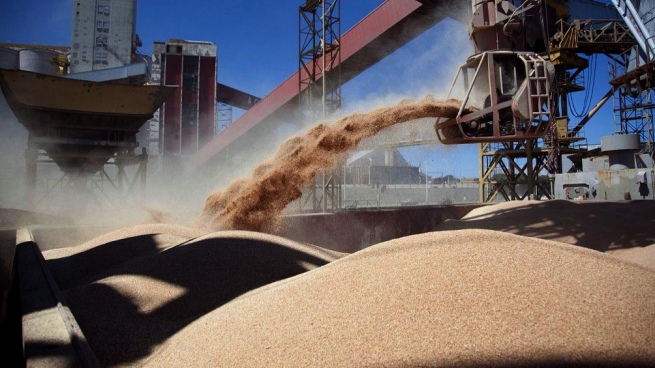In April, Brazil created 196,966 new formal jobs. The balance is the result of a total of 1,854,557 admissions and 1,657,591 dismissals. As a result, CLT workers in the country were, that month, in 41,448,948 jobs, which, according to data from the balance sheet of the General Register of Employed and Unemployed (Novo Caged) released today (6), represents an increase of 0.48 % compared to the previous month.
According to Novo Caged, in 2022 the balance is 770,593 jobs, a number that results from a total of 7,715,322 admissions and 6,944,729 dismissals. This balance is 3.6% lower than that recorded in the same period last year.
According to the executive secretary of the Ministry of Labour, Bruno Dalcolmo, this negative balance “is evidence of a greater base; of a greater stock of jobs, so it is natural that the percentage of growth decreases over time”, he said when commenting that, in the 2022 scenario, “there is no expectation that the same number of jobs will be generated as last year, when more than 2 million jobs were created.
Dalcolmo explains that 2021 was a “positive history” resulting from factors such as the recovery of the economy after covid-19 and the performance of benefits aimed at maintaining employment and income. “That said, the expectation for 2022 is quite positive, with the creation of between 1.5 million and 2 million jobs [até o final do ano]”.
groups
Positive balances were recorded in four of the five major groups of economic activities in April, especially in the service sector, which generated 117,007 jobs, distributed mainly in information, communication and financial, real estate, professional and administrative activities.
Commerce generated 29,261 new jobs, while industry had a balance of 26,378 jobs, mainly concentrated in the manufacturing industry (balance of 22,520 jobs). The construction sector had a balance of 25,341 jobs.
The agriculture, livestock, forestry, fisheries and aquaculture sector decreased the number of formal jobs, with the number of dismissals (96,842) being higher than the number of admissions (95,820). The balance, therefore, was negative, with 1,021 fewer jobs.
Regions and States
All five Brazilian regions had a positive balance, with a variation between 0.32% (South Region, with 25,102 new jobs) and 0.72% (Central-West Region, with 25,598 new jobs). In the Southeast Region, 101,279 jobs were created (an increase of 0.48%, compared to the previous month); in the Northeast there were 29,813 new jobs (0.45%); and in the North Region there were 12,023 new jobs (0.62%).
Among the federative units, São Paulo had the best balance, with 53,818 new jobs (0.42% more, compared to March); followed by Rio de Janeiro, with 22,403 positions (0.69%); and Minas Gerais, with 20,059 jobs (0.46%).
According to Caged, two federative units had a negative balance: Alagoas, which lost 181 formal jobs, representing a drop of 0.05%; and Pernambuco, which reduced the balance of CLT jobs by 807 (-0.06%).
In relative terms, Amapá was the state that registered the highest increase in the stock (1.04%, which corresponds to an increase of 752 posts in the balance). In second place is Goiás (0.98%, with a positive balance of 13,166 jobs).
The average salary in the country, recorded at the time of admission in April, was R$ 1,906.54. “Compared to the previous month, there was a real increase of R$ 15 in the average admission salary, a variation of around 0.79%”, details Caged.
Intermittent work
Novo Caged also details the situation of intermittent work in the country, a model adopted since the labor reform implemented by the Michel Temer government. In this type of employment contract, service provision is not continuous and periods of service provision and inactivity may alternate.
According to Caged, in April this modality registered 23,142 admissions and 15,486 dismissals, generating a balance of 7,656 jobs in 5,406 contracting establishments. “A total of 202 employees signed more than one contract as part-time workers”.
The sectors that most hired intermittent work were services (5,778 jobs); civil construction (888 jobs); general industry (600); and commerce (471). The agricultural sector had a negative balance (-81 positions).
Partial Regime
This type of contract allows for a duration that does not exceed 30 hours per week, without the possibility of extra hours per week, or even a duration that does not exceed 26 hours per week, with the possibility of adding up to six extra hours per week.
In this modality, the balance was 4,738 new positions, the result of 20,863 admissions and 16,125 dismissals, in 9,635 contracting establishments.
The service sector showed the highest balance, with 2,502 new jobs, followed by commerce (1,516 jobs), general industry (539 jobs), civil construction (141 jobs) and agriculture (40 jobs).
Agreed Shutdowns
In April, the total number of dismissals through an agreement between employer and employee stood at 17,783. Caged adds that there were 74 employees who made more than one termination through an employer agreement.
The service sector recorded 8,425 dismissals, while the commerce sector showed 3,938 dismissals. General industry accounted for 3,241 dismissals; construction, by 1,532; and agriculture, for 647 layoffs.















